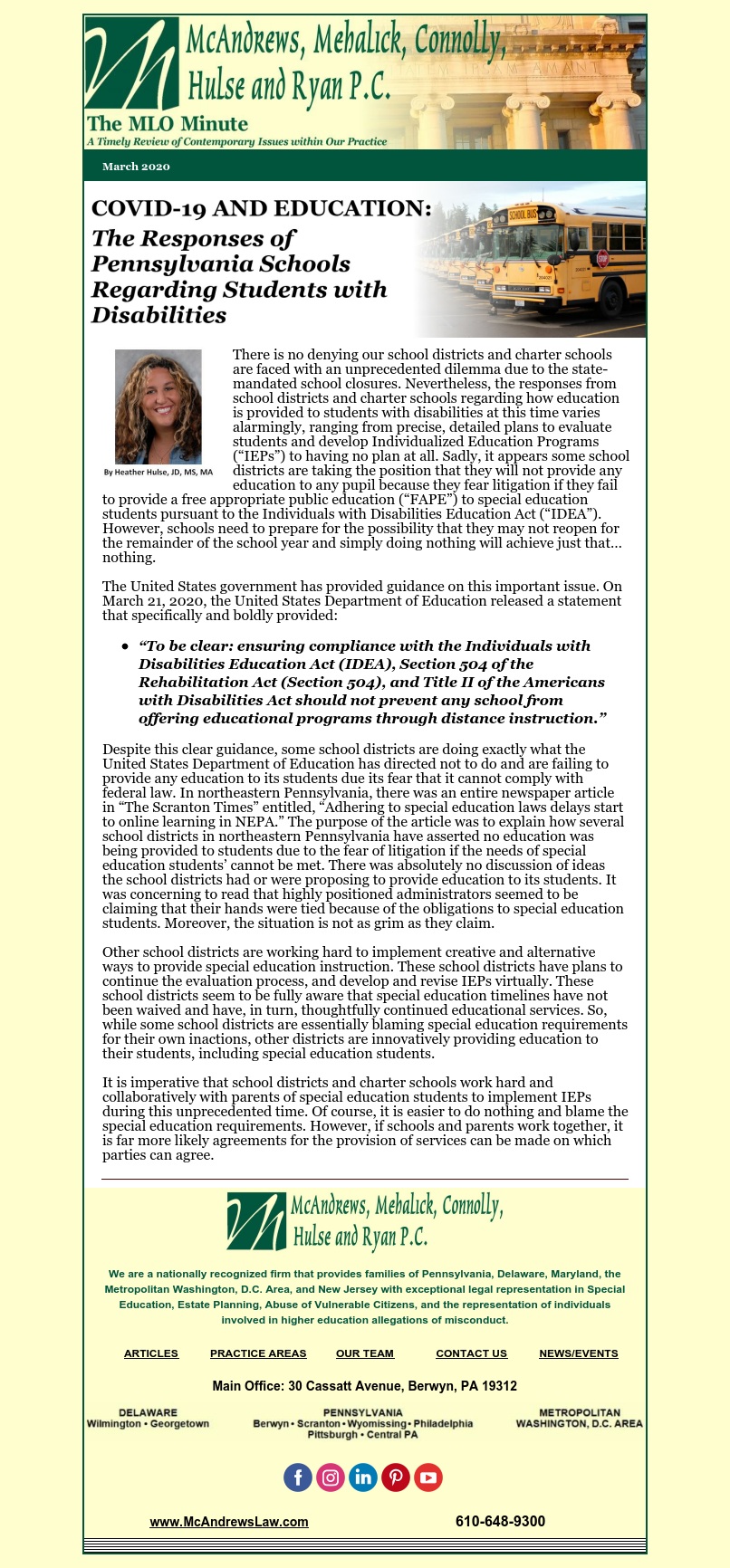March 2020
The MLO Minute: By, Heather Hulse, JD, MS, MA
There is no denying our school districts and charter schools are faced with an unprecedented dilemma due to the state-mandated school closures. Nevertheless, the responses from school districts and charter schools regarding how education is provided to students with disabilities at this time varies alarmingly, ranging from precise, detailed plans to evaluate students and develop Individualized Education Programs (“IEPs”) to having no plan at all. Sadly, it appears some school districts are taking the position that they will not provide any education to any pupil because they fear litigation if they fail to provide a free appropriate public education (“FAPE”) to special education students pursuant to the Individuals with Disabilities Education Act (“IDEA”). However, schools need to prepare for the possibility that they may not reopen for the remainder of the school year and simply doing nothing will achieve just that…nothing.
The United States government has provided guidance on this important issue. On March 21, 2020, the United States Department of Education released a statement that specifically and boldly provided:
“To be clear: ensuring compliance with the Individuals with Disabilities Education Act (IDEA), Section 504 of the Rehabilitation Act (Section 504), and Title II of the Americans with Disabilities Act should not prevent any school from offering educational programs through distance instruction.”
Despite this clear guidance, some school districts are doing exactly what the United States Department of Education has directed not to do and are failing to provide any education to its students due its fear that it cannot comply with federal law. In northeastern Pennsylvania, there was an entire newspaper article in “The Scranton Times” entitled, “Adhering to special education laws delays start to online learning in NEPA.” The purpose of the article was to explain how several school districts in northeastern Pennsylvania have asserted no education was being provided to students due to the fear of litigation if the needs of special education students’ cannot be met. There was absolutely no discussion of ideas the school districts had or were proposing to provide education to its students. It was concerning to read that highly positioned administrators seemed to be claiming that their hands were tied because of the obligations to special education students. Moreover, the situation is not as grim as they claim.
Other school districts are working hard to implement creative and alternative ways to provide special education instruction. These school districts have plans to continue the evaluation process, and develop and revise IEPs virtually. These school districts seem to be fully aware that special education timelines have not been waived and have, in turn, thoughtfully continued educational services. So, while some school districts are essentially blaming special education requirements for their own inactions, other districts are innovatively providing education to their students, including special education students.
It is imperative that school districts and charter schools work hard and collaboratively with parents of special education students to implement IEPs during this unprecedented time. Of course, it is easier to do nothing and blame the special education requirements. However, if schools and parents work together, it is far more likely agreements for the provision of services can be made on which parties can agree.





